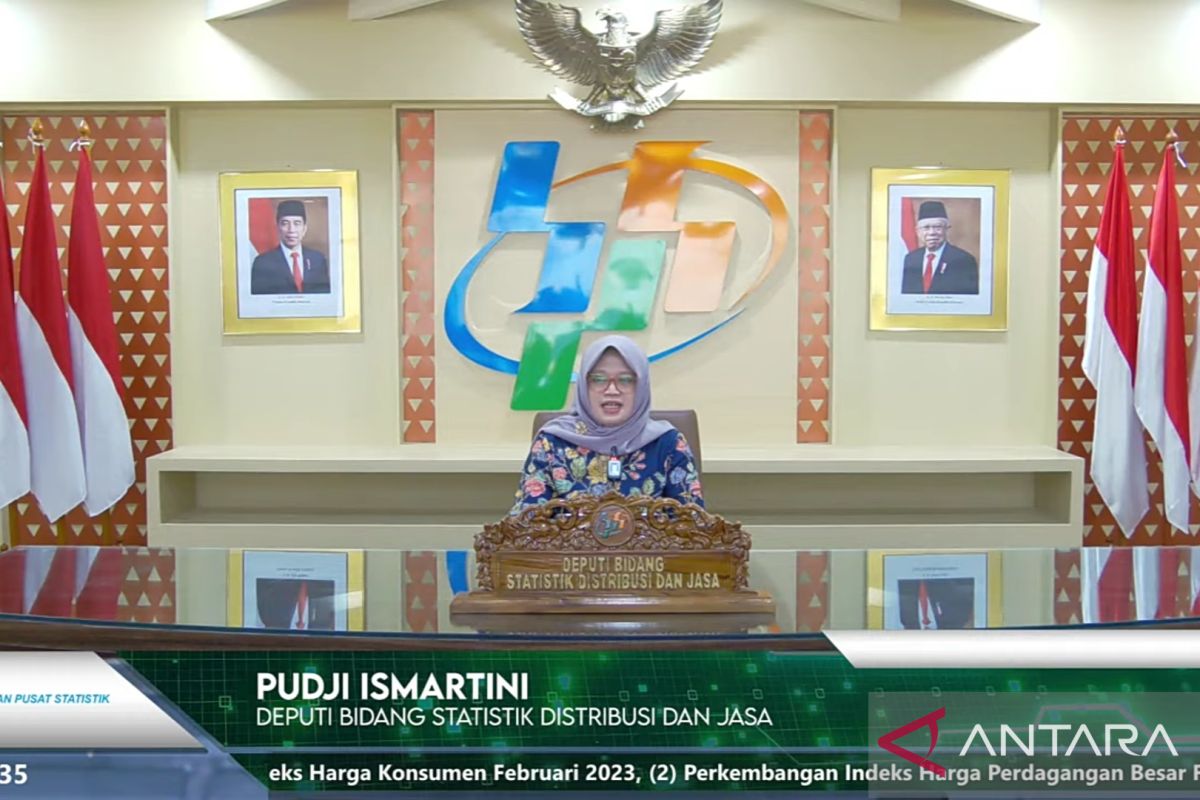Based on the previous years' trend, inflation during the 2023 Ramadhan must be managed by controlling the price of commodities that may push up inflation, distribution and service statistics deputy at BPS, Pudji Ismartini, said at a press conference here on Wednesday.
The commodities include household fuel, cooking oil, as well as purebred chicken meat.
In 2019, during Ramadhan, inflation levels reached 0.68 percent, triggered by a hike in the prices of red chilis, purebred chicken, garlic, fresh fish, intercity transportation, and purebred chicken eggs.
In 2020, inflation during Ramadhan stood at 0.08 percent, prompted by an increase in the prices of red onions, gold jewelry, granulated sugar, household fuel, papayas, and cigarettes.
Then, during the 2021 Ramadhan, inflation reached 0.13 percent as a result of a spike in the prices of purebred chicken meat, cooking oil, oranges, household fuel, gold jewelry, and grapes.
"In 2022, during Ramadhan in April, a 0.95 (percent) inflation occurred, primarily driven by the price increase for cooking oil, gasoline, purebred chicken, air transportation tariff, household fuel, and purebred chicken egg," she informed.
The commodities that contributed the most to annual inflation included gasoline, household fuel, air transportation tariff, rice, cigarettes, purebred chicken eggs, and rent.
During the event, Ismartini also informed that national rice production in January–April 2023 reached 13.79 tons, or climbed 0.08 tons (0.56 percent) compared to the same period of 2022.
In 2022, rice production was recorded at 31.52 million tons, an increase of 0.18 tons (0.59 percent) compared to 31.36 million tons in 2021.
Related news: Jakarta govt should focus on inflation control, digitalization: BI
Related news: Minister aims for annual volatile food inflation of 3-5%
Related news: Lampung asks districts, cities to control inflation ahead of Ramadan
Translator: Sanya Dinda S, Fadhli Ruhman
Editor: Sri Haryati
Copyright © ANTARA 2023












